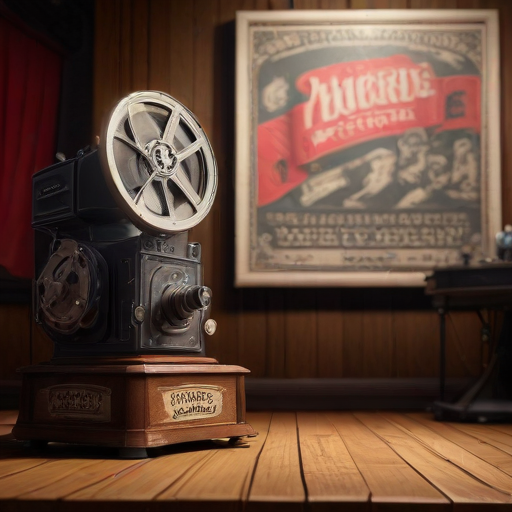The Apollo Theatre in Oberlin recently hosted a unique screening of the 1922 silent German expressionist film “Nosferatu,” which was soundtracked live with music from Radiohead’s albums “Amnesiac” and “Kid A.” This special event, held on October 22, marked the launch of a project called Silent Synced that combines classical films with alternative rock soundtracks, aiming to provide a fresh cultural experience in arthouse theaters across the country.
Traditionally, the Apollo Theatre leans towards blockbuster films, a direction that seems at odds with Oberlin College’s reputation for supporting innovative and unconventional art forms. However, the theater’s general manager, Michael Deane, emphasized the importance of sustainability in their programming, citing that children’s movies make up the majority of their business.
The event drew a substantial crowd, with many attendees expressing enthusiasm for the unique cinematic experience. College student Ruby Spencer remarked on the significant turnout, noting it was unlike anything seen at the Apollo before. Deane confirmed the event’s success, reflecting on the hustle and bustle of ticket sales, and the excitement surrounding upcoming events like “The Rocky Horror Picture Show.”
Not only did Deane work to create a festive atmosphere by including raffles for prizes, but the choice of “Nosferatu” was also personally meaningful to him, stemming from his fondness for Radiohead’s music. Past promotions for other screenings, like “Halloween,” which involved live actors, underscore the theater’s commitment to engaging local audiences.
Although some attendees, such as Cass Campi, found aspects of the film challenging or lacking in plot, the overall sentiment remained positive. Attendees appreciated the special nature of the event, highlighting its unique setting and communal experience. The screening resonated strongly with the Oberlin ethos, which emphasizes independent and offbeat films.
Both Spencer and Campi expressed hope that the theater would continue to host similar one-night-only events, recognizing a demand for niche and quirky content that appeals to college students and the local community alike. Deane’s own positive recollections of his college film experiences drive his desire to create similar enriching opportunities for today’s students.
As the Apollo Theatre looks to the future, it appears poised to enhance its program by consistently offering eclectic films and supporting independent filmmakers—something that would cultivate a vibrant film culture in Oberlin, aligning with the interests of both students and the surrounding community.
